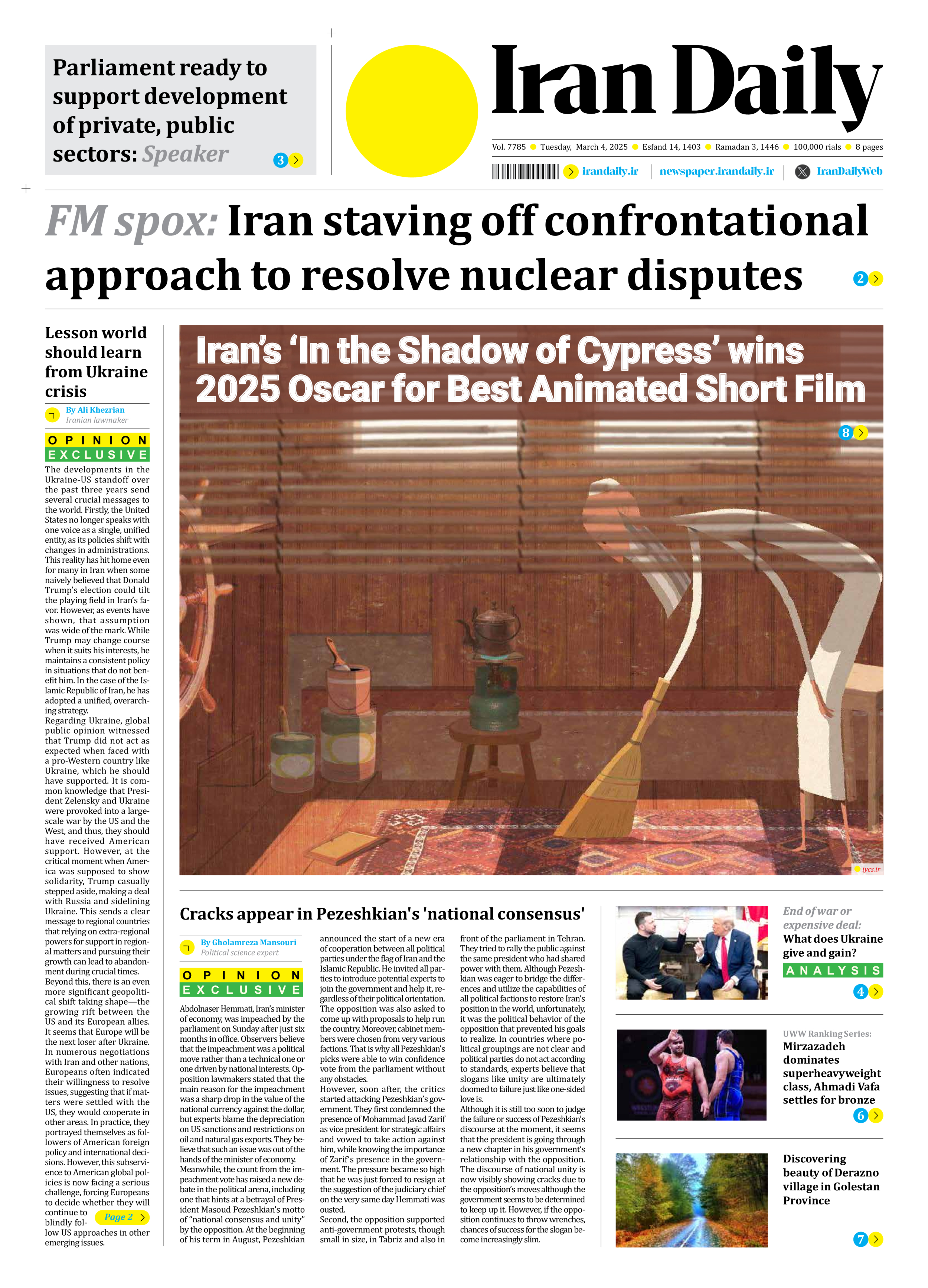
Lesson world should learn from Ukraine crisis
By Ali Khezrian
Iranian lawmaker
The developments in the Ukraine-US standoff over the past three years send several crucial messages to the world. Firstly, the United States no longer speaks with one voice as a single, unified entity, as its policies shift with changes in administrations. This reality has hit home even for many in Iran when some naively believed that Donald Trump’s election could tilt the playing field in Iran’s favor. However, as events have shown, that assumption was wide of the mark. While Trump may change course when it suits his interests, he maintains a consistent policy in situations that do not benefit him. In the case of the Islamic Republic of Iran, he has adopted a unified, overarching strategy.
Regarding Ukraine, global public opinion witnessed that Trump did not act as expected when faced with a pro-Western country like Ukraine, which he should have supported. It is common knowledge that President Zelensky and Ukraine were provoked into a large-scale war by the US and the West, and thus, they should have received American support. However, at the critical moment when America was supposed to show solidarity, Trump casually stepped aside, making a deal with Russia and sidelining Ukraine. This sends a clear message to regional countries that relying on extra-regional powers for support in regional matters and pursuing their growth can lead to abandonment during crucial times.
Beyond this, there is an even more significant geopolitical shift taking shape—the growing rift between the US and its European allies. It seems that Europe will be the next loser after Ukraine. In numerous negotiations with Iran and other nations, Europeans often indicated their willingness to resolve issues, suggesting that if matters were settled with the US, they would cooperate in other areas. In practice, they portrayed themselves as followers of American foreign policy and international decisions. However, this subservience to American global policies is now facing a serious challenge, forcing Europeans to decide whether they will continue to blindly follow US approaches in other emerging issues.
Page 2







